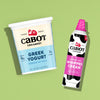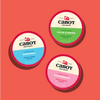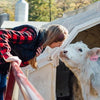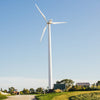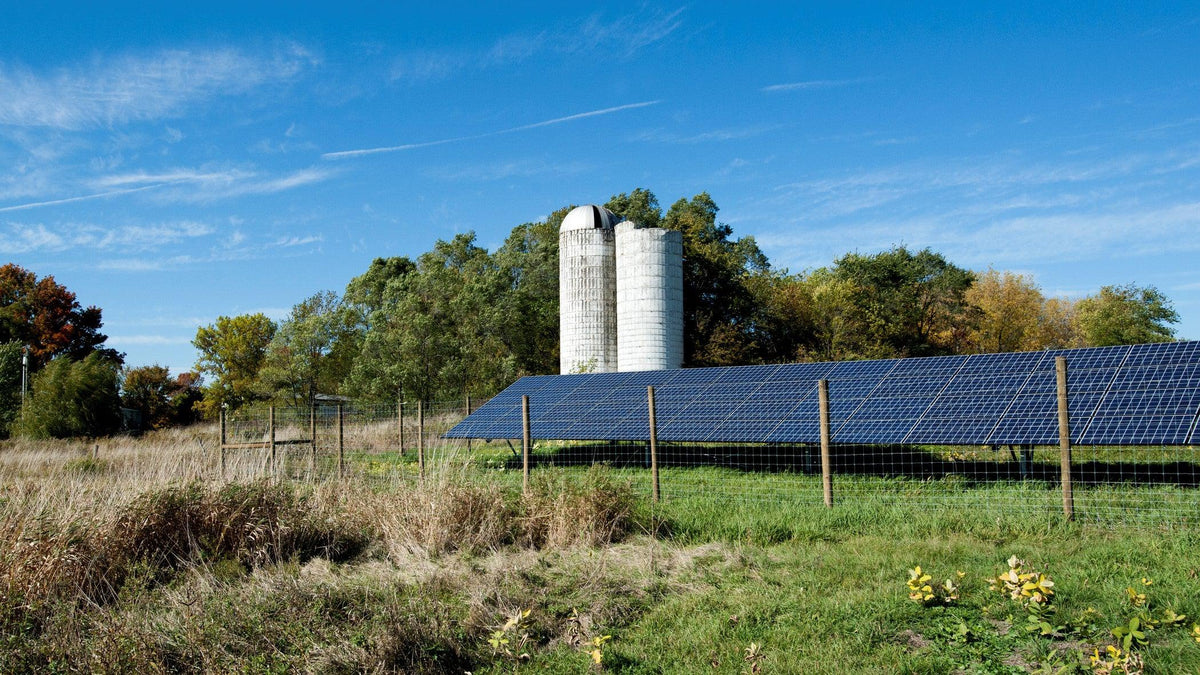
Farmer Friday: What Does Sustainability Mean to Cabot?
Sustainability encompasses many things for many people, but let’s keep it simple, for Cabot: sustainability means smart farming and smart business. Sustainable farms are simply doing what makes sense for their bank accounts, their land and animals, and their families. The same applies to sustainability on the commercial side of Cabot, smart business actions that speak to a triple bottom line.
What is a triple bottom line?
Instead of making decisions with a focus solely on profit (the conventional way of doing business), we make decisions based on profit, people and place so that all three can prosper, now and for generations to come.
And with this, we are dedicated to our credo: ‘Living within our means and ensuring the means to live.’
Many of our farmers are already living and breathing sustainability, but often times, under another name. In many ways, sustainability is an innate part of a dairy farmer’s handbook. By defining sustainability, we are shining a light on the practices our farmers use today to most efficiently run their farms and businesses, meanwhile setting the building blocks for a strong future. Simply put, when farming with a deep respect for the land, sustainability comes naturally.

Sustainability can be reusing materials. The more you reuse, the more money and time you save and the less burden you put on the environment. It can be barns with solar panels that reduce costly inputs, like energy. It can be a cover crop of winter rye that recycles inputs, like nutrients that fertilize and stabilize soil health to give way to new crops. And our favorite stories in sustainability, are closed loop systems that do it all: a methane digester reduces manure waste, recycles food scrap materials and provides renewable energy to run our farms and manufacturing plants. Anytime you reduce what is coming in or going out of your farm, or business, you’re playing a role in sustainability.

We’d like to share the sustainability stories of two farm families within the Cabot Creamery Cooperative:
Richardson Family Farm, Hartland, VT
The farm has been in the family for over 100 years. Five generations of Richardsons have grown up on the same landscape surrounded by hilly grassland and extensive woodland. Today, the operation is owned and worked by third generation family member Gordon, his sons Scott and Reid, and their respective families. Daily operations are shared by multiple generations as they have been for many decades before. Children work alongside parents and grandparents, while siblings of various ages cooperate to maintain a successful family business.

What are the roots of stewardship and sustainability on your family farm?
From the perspective of Gordon, the third generation of the Richardson family, the roots of stewardship and sustainability began in his childhood.
He says: “Our grandmother probably saw it as her role to pass on to us children her wisdom, whether she realized it or not. There seemed to be a constant reiteration of old sayings with broad meaning, such as ‘a penny saved is a penny earned,’ or ‘waste not, want not.’ Our schooling and community were also much more isolated, rural, and monetarily poorer than now. And yet my parents thought highly of education, and I became the first in our family to go to college. My father always looked to add land to our farm, something his children continued to do. These factors play a part in the roots of who I am today and in the roots of how I think about the sustainability of our farm.”

What drives your passion for sustainability?
Regarding our family’s passion for sustainability on our farm, we consider the resources around us related to environment, economy, and community. The land on this farm has the capacity to support a thriving dairy herd that makes outstanding quality milk, and who lives on the land much like their own ancestors did generations ago. Our woodland grows a diverse mix of soft and hardwood, providing us a supply of firewood, Christmas trees, and capacity to make enough maple syrup to support a dynamic year round retail business. We continuously work on sharpening our best management practices in all aspects of our farm business. The landscape here has supported cows and people for many, many years before today, and we are committed to the responsibility of conducting our farm operations in ways that will provide the same possibility for future generations yet to come. We work hard to operate our farm in harmony with the community around us and welcome our neighbors to visit, enjoy, and learn about our stewardship practices.

What is the next sustainability story on your farm?
Our next sustainability story on Richardson Family Farm has just begun. In late summer of 2015 we installed a 44Kw solar array on several rooftops around the farm yard. Our goal with the project is to offset the cost of electricity used on the farm and in several family members’ homes. It is still quite new and we are glad for many sunny days during recent weeks!
Freund’s Farm, East Canaan, CT – Amanda Freund
Dairy farming has been in the family’s blood for several generations, Matt, Ben and their three other siblings were raised on the farm. Their parents were the original owners, and they purchased the farm shortly after World War II. Now Ben and Matt are partners. Three of Matt and Theresa’s children have returned to the farm full-time as well as their niece Sarah and her husband Andy. The oldest, Amanda is in charge of feeding cows each morning and marketing their value added product – CowPots. The family expects the farm to continue for generations to come. The Freunds were focused on the environment and sustainable dairy farming practices long before it was cool. And they didn’t just think about it, they did something about it.
What are the roots of stewardship and sustainability on your family farm?
We have always been early adopters of new technology on our farm. My late grandmother, Esther Brown Freund, was fascinated by the idea of a methane digester in the 70s. They actually built a prototype digester in the 70s using a metal barrel and were burning cow farts (as my dad likes to call it), just to see if they could. It was Esther’s two sons, Matt (my dad) and Ben who eventually built a 67,000 gallon methane digester in 1997, allowing our farm to capture the methane and use it as a biogas (in place of propane) to heat our hot water for the farmhouse and the barns. Since then the technology of capturing methane has changed and improved substantially, but we may have the longest continuously run methane digester in the country, and that’s no small feat!

From the perspective of Matt, the second generation of the Freund Family Farm, he says:
“Both stewardship and sustainability were the basis on the way my parents farmed. They instilled management practices which fostered a deep respect for the environment without forgetting the economic viability of the farm. Because our farm is financially sound the transition to the next generation will allow this tradition to continue.”
What drives your passion for sustainability?
I’ve actually just begun drafting a revised business plan for our family farm that includes the next generation getting more involved with the farm. Last week, my uncle sent me the mission statement as it was drafted in the 1970’s when my dad and uncle were coming back to the family farm. It states:
To run a profitable dairy open to the possibility of diversification, operating in an ecologically aware environment, practicing proper animal handling, and respecting our neighbors and community.
Its 40 years later, and I think that this same mission statement is still fitting for our family and our farm as we transition into the third generation. Sustainability is four-fold for us; it involves economics, the environment, our animals, and our people (neighbors, family and employees).

What is the next sustainability story on your farm?
Transition and bringing in the next generation. Working with family is rewarding and challenging and we’ve got a lot of work ahead of us as we figure out how we each fit into this farm, how our personalities will work together and what we can bring to the table to ensure that we stay true to our mission statement and are excellent stewards to our land.





